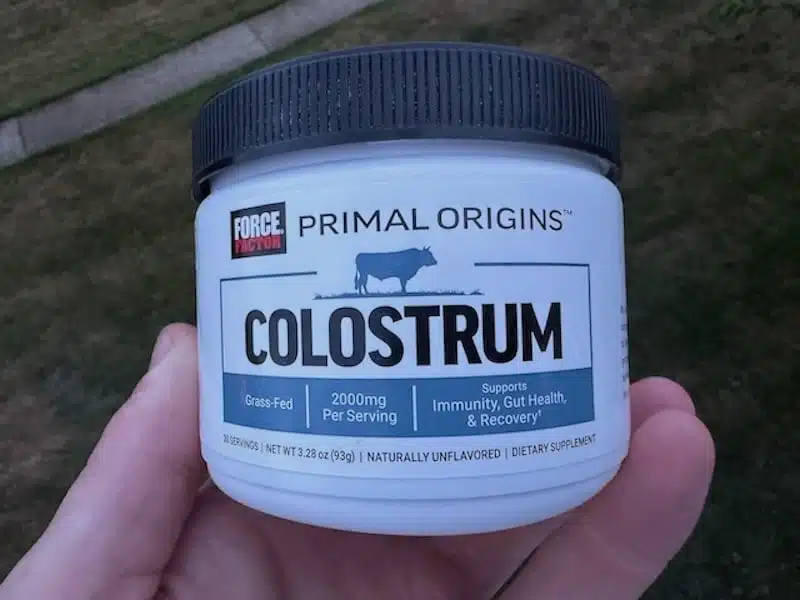Top 5 Home Remedies for Asthma: By an Asthmatic Pro Athlete
Asthma is a chronic inflammatory condition affecting the airways, leading to episodes of wheezing, coughing, and shortness of breath.
At its core, asthma is driven by an overreaction of the immune system, often triggered by allergens, pollutants, respiratory infections, or physical exertion.
The root cause of asthma varies from person to person, but it generally involves a combination of genetic predisposition and environmental factors that lead to airway inflammation and hyperreactivity.
The immune system’s role is central in asthma because the condition involves the body’s immune response attacking perceived threats in the lungs, such as allergens or irritants, leading to inflammation and narrowing of the airways.
This immune response is what causes the symptoms of asthma, including airway obstruction and excessive mucus production. Chronic inflammation of the airways makes them hypersensitive to triggers, creating a vicious cycle of asthma exacerbation.
If you have asthma, you don’t need to understand any of that information above to know that having asthma means it is hard to breathe. All day, every day.
I know this because I have had asthma nearly my whole life, and reducing asthma symptoms has been one of the defining aspects of my career.
I have tried many, many home remedies for asthma, and there are a variety of natural solutions to reduce asthma symptoms. I am yet to know of a cure for asthma, either natural or pharmaceutical, but I do know I have drastically improved my lung function by using the home remedies for asthma in this article.
Gut-Lung Axis: The Connection Between Gut Health and Asthma
One emerging area of research focuses on the gut-lung axis, a bi-directional communication pathway between the gut microbiome and the lungs. This connection highlights how gut health can significantly influence respiratory conditions like asthma.
The gut houses trillions of microorganisms that play a crucial role in regulating immune responses. When the gut microbiome is imbalanced (a state known as dysbiosis), it can lead to systemic inflammation, which negatively affects lung health.
For example, colostrum, which I mention as one of my top remedies, supports gut health by improving the balance of beneficial bacteria. A healthy gut microbiome can modulate immune function, leading to reduced inflammation not just in the digestive tract but also in distant organs, including the lungs.
This explains why improving gut health can lead to better asthma control in the long run. By maintaining a healthy gut-lung axis, you can potentially reduce the frequency and severity of asthma attacks.
Natural Anti-Inflammatories and Their Role in Asthma Management
Natural remedies such as turmeric and fish oil are effective for asthma because they target the inflammation that underlies the condition. Both turmeric (rich in curcumin) and fish oil (high in omega-3 fatty acids) have potent anti-inflammatory properties, helping to reduce airway inflammation and improve lung function over time.
These substances work by modulating the immune response, preventing excessive inflammation in the airways, and reducing hypersensitivity to asthma triggers.
Incorporating these anti-inflammatory natural remedies can help manage the root cause of asthma—chronic airway inflammation—while also supporting the broader immune system.
However, it’s important to remember that these natural interventions work best as part of a comprehensive asthma management plan, which includes medications, lifestyle changes, and medical guidance.
Top 5 Ways to Reduce Asthma Symptoms: Insights from a Professional Athlete with Asthma
Managing asthma as a professional athlete has been a journey of trial, error, and eventual success. Over the years, I’ve learned that while medication is crucial, integrating home remedies can also play a significant role in controlling asthma symptoms.
These remedies have been instrumental in allowing me to manage asthma effectively while maintaining a professional basketball career. Integrating these strategies into your routine may not replace medical treatment, but they can provide valuable support alongside your prescribed medications.
Always consult with your healthcare provider to ensure these remedies fit into your personalized asthma management plan.
1) Breathwrk App: Breathing Exercises for Asthma Control
One of the most effective ways I’ve found to manage my asthma is through regular breathing exercises. The Breathwrk app has been a game-changer for me, offering guided breathing routines that focus on improving lung function and overall breath control.
Asthma is all about managing airflow, and these exercises help me breathe better during intense physical exertion and in daily life.
Consistency is key—just a few minutes a day can make a significant difference.
2) Turmeric: An Herbal Remedy with Powerful Effects
Turmeric, especially when combined with black pepper and ginger, has been a great natural remedy for asthma.
The active compound, curcumin, has anti-inflammatory properties that can help reduce airway inflammation, which is key in asthma management.
I’ve found that whether I take it as a tea or supplement, the combination of turmeric + black pepper + ginger amplifies its effectiveness. It’s important to note that turmeric works best as part of a long-term health routine rather than a quick fix.
My favorite turmeric supplement is NatureWise Curcumin Turmeric because it is a high-quality, affordable option.
Last update on 2025-07-08 / This article includes affiliate links/Images via Amazon Product Advertising API. I may earn commissions on purchases made through these links.
3) Fish Oil: Omega 3’s for Supporting Respiratory Health
Fish oil, rich in omega-3 fatty acids, is a supplement I’ve used specifically for exercise-induced bronchoconstriction, a form of asthma triggered by physical activity. Research supports the anti-inflammatory effects of fish oil, making it a valuable addition to my regimen.
Research shows that omega-3 fatty acids (EPA and DHA) can improve lung function and decrease post-exercise inflammation in athletes with asthma. These anti-inflammatory effects make fish oil an effective supplement for managing asthma.
The recommended daily dosage for asthma relief is 3.2 grams of EPA and 2.2 grams of DHA, which has been shown to improve lung function and reduce inflammation.
Always consult with a healthcare provider to ensure proper dosing. Consistency is key to achieving long-term benefits.
Select a fish oil supplement with a high concentration of EPA and DHA, molecularly distilled for purity, and in triglyceride form for better absorption. Ensure the product is third-party tested, sustainably sourced, and free from contaminants like mercury to ensure safety and effectiveness.
It’s hard to recommend a fish oil supplement because of the simple fact that there is little transparency in the supplement industry. However, one fish oil supplement brand I like is Nordic Naturals.
Last update on 2025-07-08 / This article includes affiliate links/Images via Amazon Product Advertising API. I may earn commissions on purchases made through these links.
4) Colostrum: Enhancing Gut and Lung Health

Another supplement that’s had a noticeable impact on my asthma is colostrum. Colostrum supports gut health, which has been linked to long-term improvements in asthma symptoms.
By focusing on gut health, you can reduce overall inflammation in the body, which can positively affect respiratory health.
Since adding colostrum supplements to my routine, I’ve noticed better recovery and reduced severity in asthma symptoms over time.
Force Factor Colostrum is a great budget option, or you can buy ARMRA Colostrum if you want the best available option.
Last update on 2025-07-09 / This article includes affiliate links/Images via Amazon Product Advertising API. I may earn commissions on purchases made through these links.
5) Controlled Exercise: Building Resilience and Tolerance
It may sound counterintuitive, but exercise has been one of the most crucial elements in managing my asthma. However, it’s essential to approach exercise cautiously, especially if asthma is triggered by physical activity.
In my case, keeping my physical fitness as high as possible has improved my overall lung capacity and endurance, helping me control my asthma.
Start slow, listen to your body, and always consult your doctor to develop an exercise plan that works for you. Over time, exercise tolerance can improve, making asthma less debilitating.
This website does not provide medical advice. This website site does contain affiliate links, and purchases may earn a commission.
Read my Medical Disclaimer, Review Disclaimer, and Publishing Policies for more details. Use of this site indicates acceptance of these terms.






